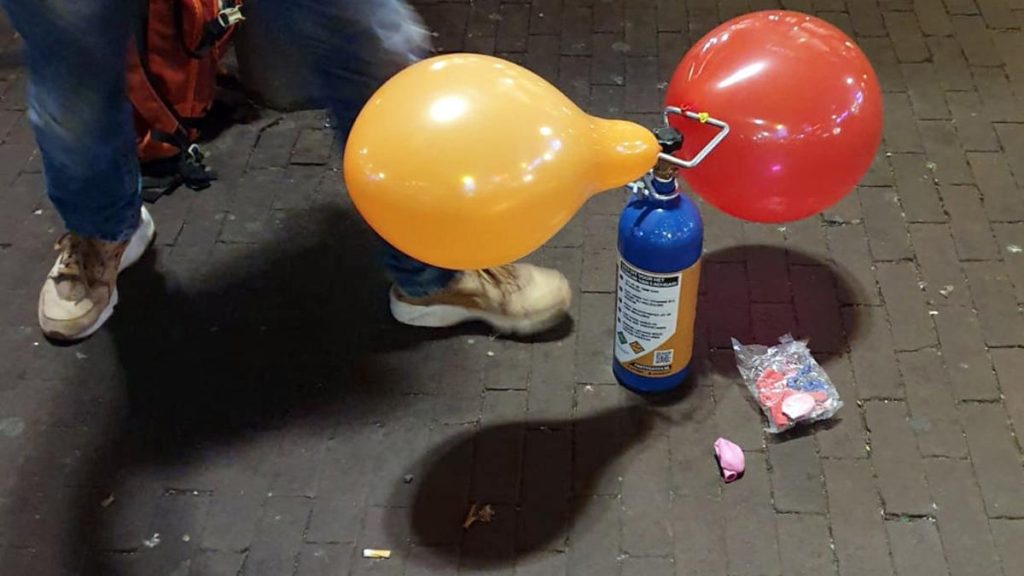The Union Party Drug Union is calling for a ban on the sale of laughing gas to minors. The gas, which is being used as a party drug by young people, has sparked protests in Gifhorn, where a vending machine dispensing the substance is located near a school. In response, the City Parent Council has written a letter to Health Minister Lauterbach urging action against the vending machine. Laughing gas, when inhaled from balloons, can cause fainting, paralysis, and heart problems, prompting doctors to warn against its consumption. Politicians are advocating for a ban on the substance, given its potential health risks.
The Union is pushing for regulations to prevent the use of laughing gas as a party drug, especially among minors. Concerns have arisen due to the increasing cases of abuse of the substance in the party scene and on social media platforms like TikTok, as well as its easy availability in kiosks and supermarkets. The risk of psychological dependence is significant, with extreme cases leading to fainting, paralysis, and heart problems. The warnings from medical professionals and law enforcement are clear, underscoring the urgency of implementing legislation to prevent the use of laughing gas as a party drug and its distribution to minors.
Medical professionals, including general practitioners, are also advocating for stricter regulations on the sale of laughing gas to minors. The sale of the substance should be more heavily regulated, as is already the case in other European countries, to address the growing problem of its abuse among young people. Although reliable data on laughing gas consumption in Germany is lacking, there is a clear indication that it is becoming a larger issue. Excessive consumption of laughing gas can damage the nervous system, with the gas, also known as nitrous oxide, being legal and commonly inhaled from whipped cream canisters or balloons.
Nitrous oxide, commonly known as laughing gas, has become a popular party drug among young people in the form of inhalation from balloons. The substance, with its numbing effects in higher quantities, initially allowed for painless surgery over 200 years ago. Although other anesthetics are typically used in medical settings today, laughing gas remains legal in Germany and is often inhaled from whipped cream canisters or balloons, with risks including dizziness, nausea, and numbness. Excessive consumption can also cause damage to the central nervous system, highlighting the importance of addressing the substance’s availability and use among minors.
In light of the growing concerns surrounding the abuse of laughing gas among young people, the call for stricter regulations on its sale to minors is aimed at curbing its misuse as a party drug. Health professionals and politicians are united in their efforts to draw attention to the potential health risks associated with the substance’s consumption, with a growing recognition of the need to prevent its availability and use among minors. As discussions continue on possible legislative measures to address the issue, the focus remains on protecting the well-being of young people and preventing the harmful effects of laughing gas abuse in the future.


